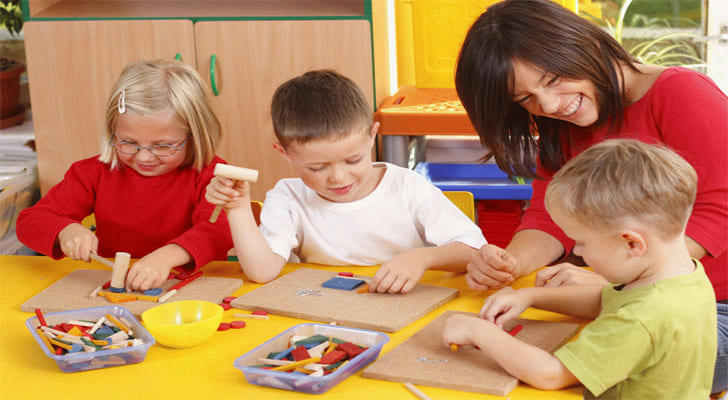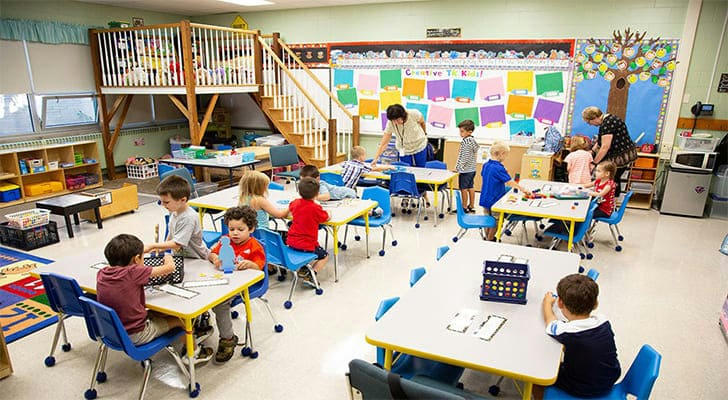10 Skills Rated Most Important for Kindergarten Teachers

Kindergarten teachers are multifaceted professionals: educators, caregivers, disciplinarians, and role models of kindness and patience. Teaching at this level is a challenging vocation, balancing responsibility for children’s educational and emotional development. Yet, it offers a stable and rewarding career, with a median salary of $60,900 per year as of 2021, competitive for single-income households. The job market is strong, with a projected 4% growth through 2031 and more than 120,000 new positions expected annually at the kindergarten and elementary levels. Typically, becoming a kindergarten teacher requires a bachelor’s degree in elementary education, and in some states, specific content area majors or certifications may be required. Despite the importance of the role, on-the-job training is often limited, making it essential for teachers to develop a broad range of skills to succeed. Here are the top 10 skills rated most important for kindergarten teachers:

#10. Service Orientation
Service orientation involves a genuine desire to help others and being responsive to the specific needs of students. Strategies include collaborating with colleagues to support individualized education plans, maintaining consistency in teaching methods, and fostering strong relationships with students and their families. Teachers should also creatively address diverse student needs, such as using narrational, experiential, and aesthetic approaches to learning.
#9. Time Management and Flexibility
Effective time management allows teachers to balance long-term educational goals with immediate needs. Strategies include planning homework assignments, grading in batches, and prioritizing critical tasks. Good classroom management also involves flexibility—adapting teaching methods to meet students' needs and adjusting lesson plans as necessary. For example, spending more time on reading or math when students need extra help and creatively engaging students in learning are crucial for maintaining a productive classroom environment.
#8. Reading Comprehension
Teaching reading comprehension at an early age involves understanding phonetics and decoding text. Explicit phonics instruction helps students recognize letters and sounds, enabling them to become fluent readers. Teachers can use phonemic awareness warm-ups to reinforce these skills, ensuring students develop a strong foundation in reading.
#7. Coordination
Coordination in the classroom requires a balance of organization and flexibility. Lesson planning is essential, allowing teachers to approach lessons confidently, manage time effectively, and align with educational standards. Good lesson plans are student-focused, incorporating various activities and leaving room for discussion. For example, teachers can combine play and learning by taking students on a nature walk to explore habitats and species, making education both fun and informative.
#6. Speaking
Effective communication is crucial for kindergarten teachers. Teachers must model proper language use, including grammar and vocabulary, to help students develop their speaking skills. Engaging students in conversations, asking leading questions, and actively listening are key strategies for improving communication in the classroom.
#5. Monitoring
Monitoring involves continuously assessing both teaching methods and student performance. Teachers can evaluate their work by reviewing lesson content, materials, and instructional approaches. Student progress can be monitored through quick review questions, board work, and interactive exercises like "1, 2, 3," where students signal their understanding during lessons. By staying attuned to student needs, teachers can adjust their instruction accordingly.
#4. Development and Implementation of Lessons
Effective lesson development requires selecting appropriate teaching methods and creatively delivering content. Teachers might use conference learning for individualized attention, cooperative learning to foster teamwork, or hands-on methods for practical skills. Incorporating arts and crafts, such as making paper bag jellyfish or popsicle stick animals, can make lessons engaging and memorable. Patience is key, as students have different backgrounds and learning levels, and all look to their teacher for guidance.
#3. Communication and Active Listening Skills
Strong communication and active listening skills are essential for teaching effectively. Teachers must be adept at both receptive and expressive communication to understand and respond to their students' needs. Active listening involves paying full attention to students, asking questions, and engaging with their families to create a supportive learning environment. Body language and tone of voice also play a significant role in conveying care and concern, helping to build trust and encourage students to express themselves.
#2. Social Perceptiveness
Social perceptiveness involves understanding students' reactions and the underlying reasons behind them. Teachers with developed social-emotional competencies (SEC) can better manage challenging students, reducing the risk of burnout. SEC enables teachers to respond to disruptive behavior with compassion, redirecting students constructively. Classrooms where respectful communication and smooth transitions are the norm are often led by teachers with strong SEC, who create lessons that foster a love of learning and student engagement.
#1. Instructing
Instructing is the core of teaching, especially at the kindergarten level, where children are just beginning their educational journey. Effective teachers use diverse strategies to reach all students, regardless of their learning styles or confidence levels. Integrated technology, cooperative learning, and differentiated instruction are among the recommended approaches. Goal-setting can also empower students to take ownership of their learning, with visual trackers helping them monitor their progress. In summary, successful kindergarten teachers possess a broad set of skills that go beyond traditional teaching. From service orientation and time management to communication and instructing, these professionals create environments where young learners can thrive.
